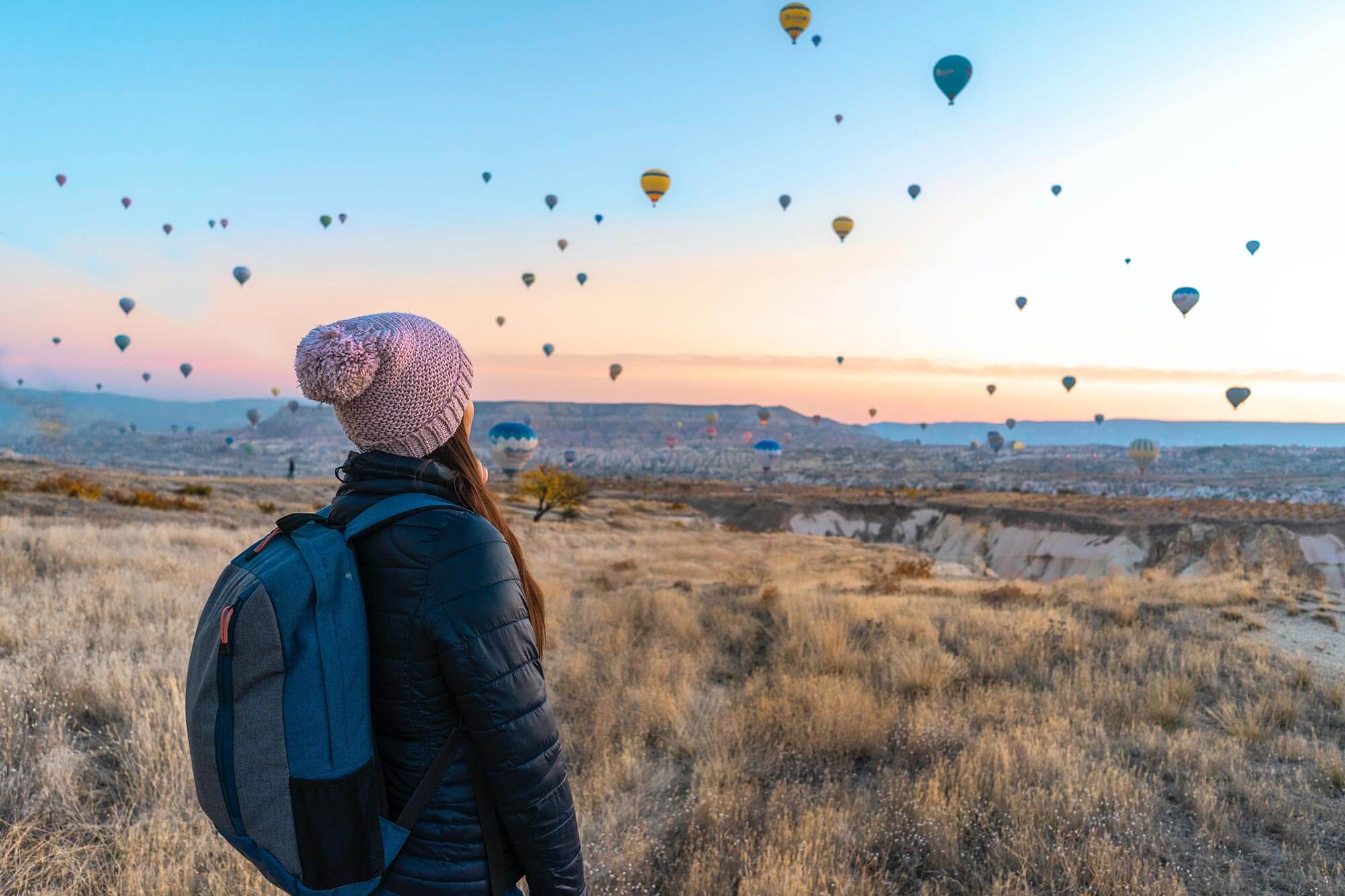We’ve been taught to travel with intent — to plan, optimize, squeeze in as much as we can. The tight schedules, back-to-back tours, and exhaustive “Top 10” lists promise satisfaction but often leave us more drained than delighted. It’s strange, isn’t it? To return from vacation needing rest.
But there’s a different way to move through the world — slower, looser, softer. It begins by letting go of the idea that every day needs to be accounted for.
%20(1).jpg)
You’re not lost if you’re still paying attention.
Traveling without a plan isn’t about being careless or irresponsible. It’s about being available — to the place, to the people, to yourself. It’s about trusting that wonder doesn’t always need a GPS coordinate. Sometimes, it’s the accidental corner café with the warmest bread you’ve ever had. Sometimes, it’s a conversation with a stranger that changes how you think about home. Sometimes, it’s nothing more than the light through a curtain at 4 p.m.
When you arrive in a place without an itinerary, your senses get sharper. You start seeing in wide angles. The texture of stone walls. The pauses in local conversation. The sounds that never make it into the guidebooks — a dog barking, a market stall radio, footsteps on cobblestones.
You also become more honest with yourself. What do you feel like today? What does your body need — movement, stillness, food, silence? You make decisions based on desire, not duty. There’s no list shouting “go here!” or “don’t miss this!” There’s just the pulse of the place, and your own.
This kind of travel is a partnership with the unknown. It’s saying: surprise me. Lead me somewhere small and unforgettable. You might follow a child kicking a ball into a park. You might notice an old woman watering her balcony plants and stop to wave. You might find a bookshop, or just an alley full of cats.
.jpg)
There’s freedom in choosing presence over pressure. When you don’t have to check things off, you check in instead — with how the coffee really tastes, how your breath changes when you step into an old cathedral, how the sea smells different here than anywhere else you’ve been.
You don’t feel behind because there’s no schedule. You feel full because every moment feels lived, not consumed.
People tend to think they’ll miss out if they don’t plan. But sometimes, plans are what make you miss what was right in front of you. The most iconic photos often come from patience. The best food from places with no signs. The most meaningful memories from moments you couldn’t have invented even if you tried.
Unplanned travel also changes how you engage with others. Locals can feel when you’re available. You’re not rushing to your next destination. You’re willing to talk, to ask questions, to sit a little longer. This kind of presence invites connection. And connection is the heartbeat of every meaningful trip.
“Maps show routes. Curiosity finds meaning.”
Of course, there’s a time and place for planning — especially when traveling with others, or within limited time. But even in those contexts, you can leave space. A free afternoon. A morning with no agenda. A rule that says: if something delightful interrupts us, we let it.
One day on a slow trip might look like this: waking when your body wakes. Wandering to find breakfast instead of googling it. Following a street just because it’s quiet. Sitting in a park for longer than you meant to. Getting rained on and laughing instead of running. Ending up somewhere you can’t pronounce, ordering something you don’t recognize, and realizing — this is it. This is the magic.
There’s something deeply healing about being in a place that doesn’t demand anything of you. You don’t have to post. You don’t have to perform. You can be anonymous. You can just be.
“You came all this way not to be seen — but to see.”

The rhythm of slow travel syncs you with the pace of wherever you are. Instead of dragging your own tempo across cities and landscapes, you begin to match theirs. It humbles you. It teaches you to listen. It turns the trip into a dialogue, not a conquest.
Even boredom becomes beautiful. Waiting for a bus, sitting on a bench, standing in line — these become invitations to observe, to breathe, to be. And when was the last time you truly gave yourself that?
When you return home from a trip like this, it’s not the photos that linger — it’s the feeling. A café table in a quiet street. A smile from someone who didn’t speak your language. The color of morning. The slowness.
You come home with less to prove. But more to carry.
The journey changed you. Even if no one sees it, you’ll always know.






.webp)
.jpg)


